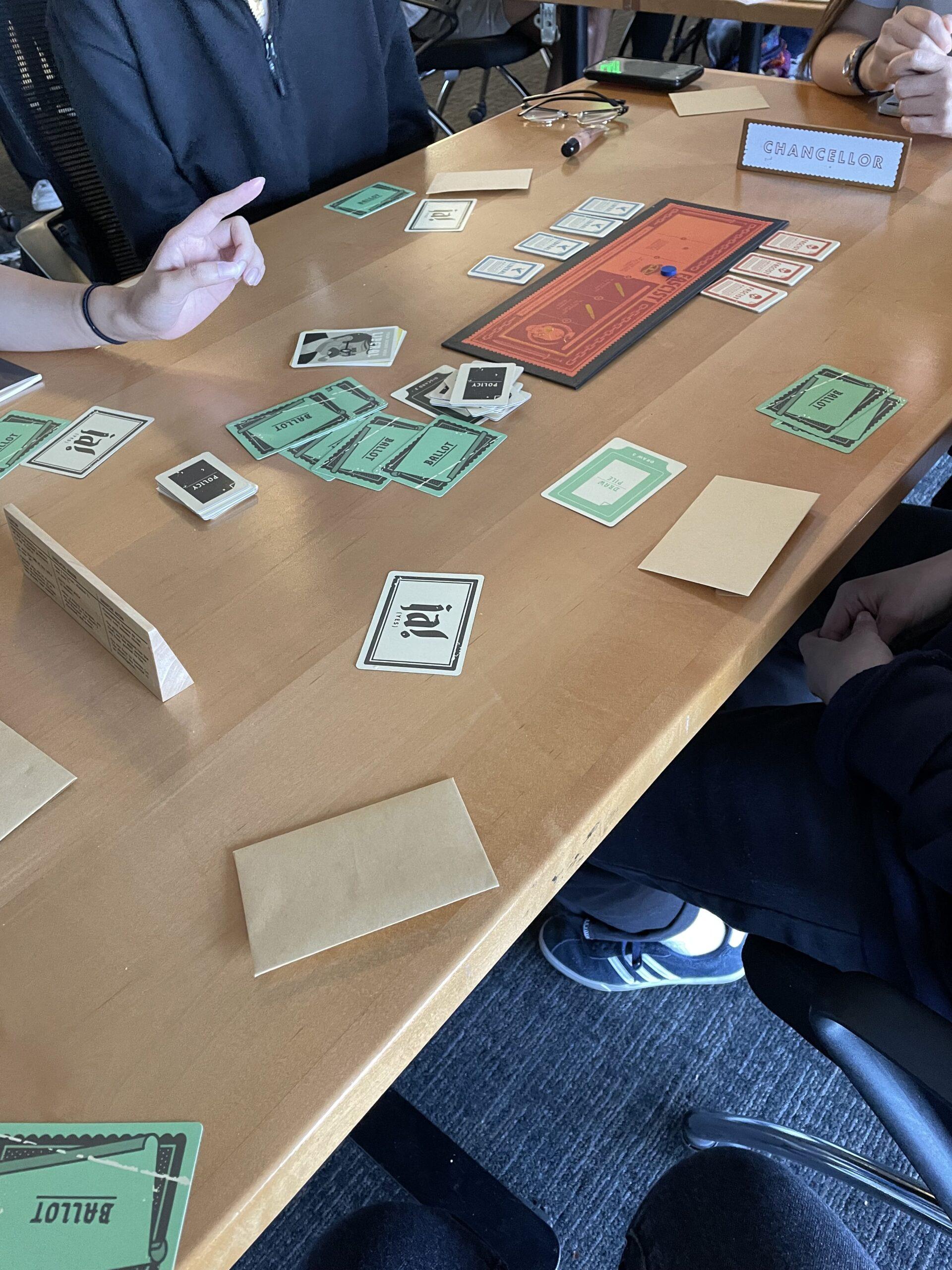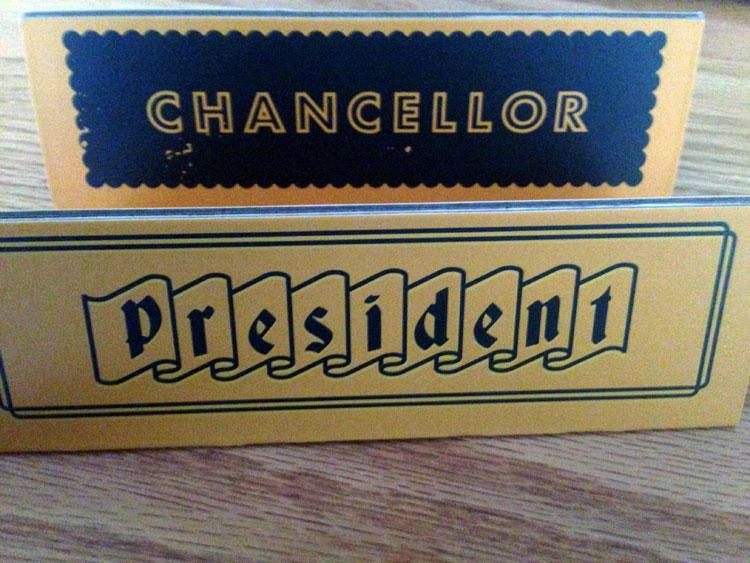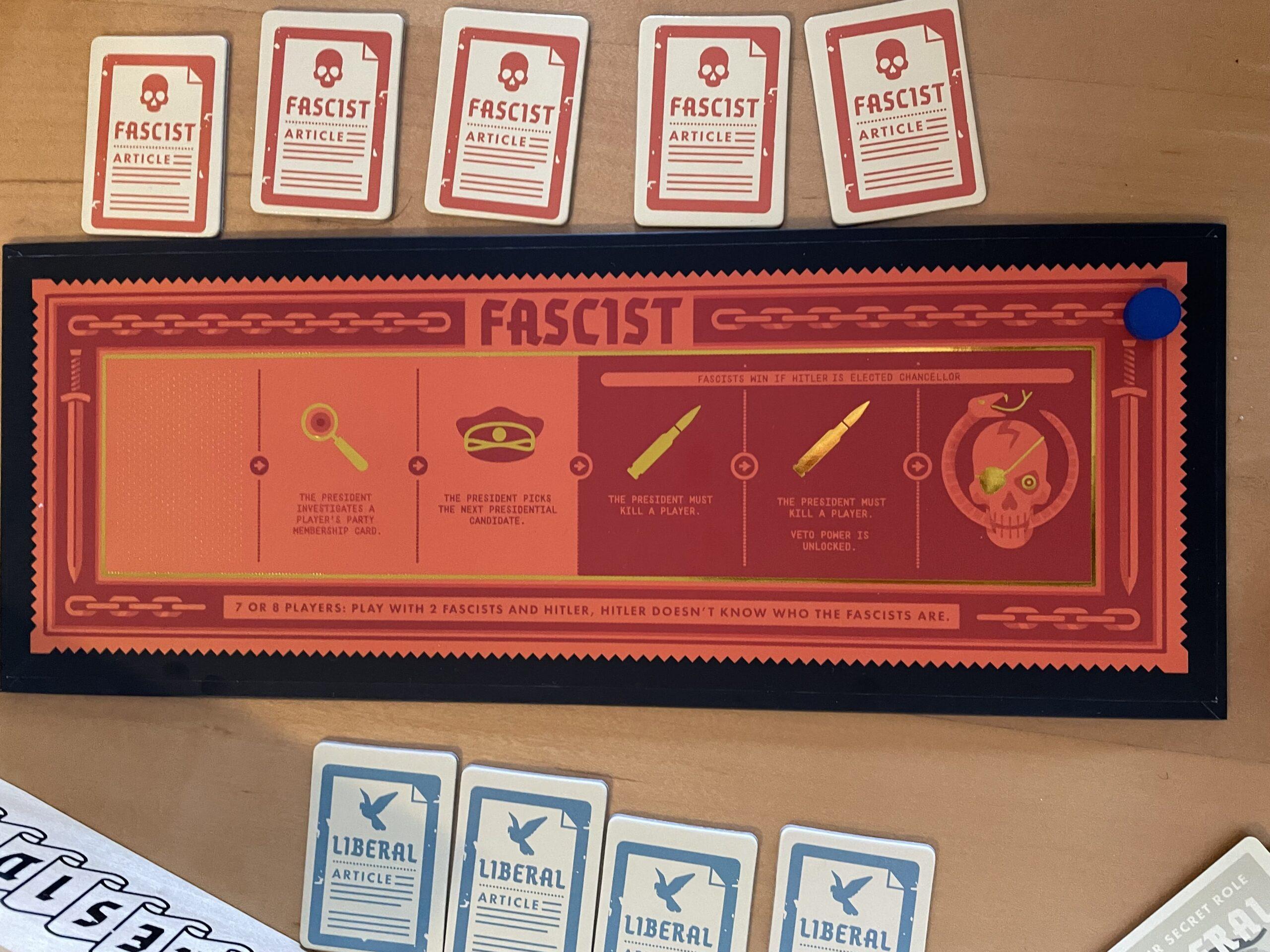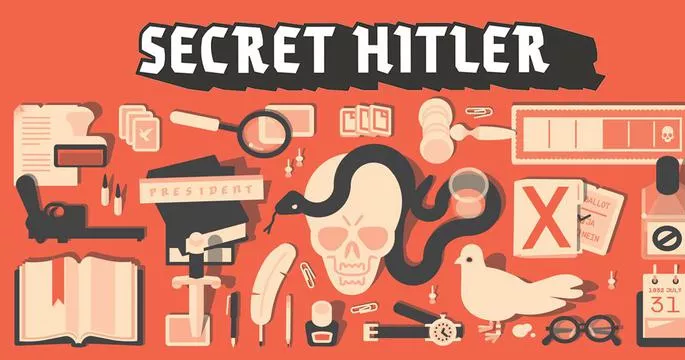
What game?
I played Secret Hitler, a team vs. team social deduction board game designed by Max Temkin and developed by Goat, Wolf, & Cabbage LLC. The target audience is for people 17 years and older. 5-10 players can play at a time.
How do you play?
To set up the game, each player is randomly assigned a hidden party: liberal or fascist. One player is assigned the fascist party and the role of Hitler. At the start of the game, one player is appointed President and another player is appointed Chancellor.

Then all players vote yes or no if they would like these players to be appointed to their role. Afterwards, the President draws 3 policy cards, discards 1, and passes the remaining 2 to the Chancellor. The Chancellor then chooses a policy to enact. The possibilities are either a Liberal policy or a Fascist policy. The objective for liberals is to win by enacting 5 liberal policies, or by killing Hitler. Fascists’ objective is to win by enacting 6 fascist policies, or by electing Hitler as Chancellor after enacting 3+ fascist policies. As a zero-sum game, either team liberals or team fascists will win at the end. Every time a fascist policy is enacted, the board is advanced, and the next President will have the special ability indicated by the board that they must perform.

The President is determined in clockwise order, and the Chancellor is appointed by the President. This process continues until either liberals or fascists win. Because liberals outnumber fascists, it creates a very interesting dynamic amongst players in which it’s in everyone’s advantage to say that they are liberal and never reveal if they are fascist. If your role is fascist, lying is encouraged.
Similar games
Secret Hitler is similar to Mafia and Werewolf. Secret Hitler is differentiated by its unique, fanasty type of fun story: when players enter the boundary of the game, players take on a role that involves history and politics and act accordingly to their party (liberal or fascist). Whereas in Mafia, the story largely depends on how the moderator chooses to narrate everything; Werewolf’s story is about werewolves and villagers.
The best parts + improvements
The best part about Secret Hitler, in my opinion, is that it forces every player to have power at some point, since the President and Chancellor roles are passed around to everyone. In Mafia and Werewolf, if you’re not assigned any of the special roles, then there’s not anything special you can do the entire game. I think that this aspect of Secret Hitler makes it better than Mafia and Werewolf for players who like the ability to do more during a game. It was particularly clever of the developer to have the President role to eventually be passed around to everyone in the table – it’s exciting to await your turn to have some extra power that could potentially drastically change the course of the rest of the game. However, for more laid back players who enjoy playing passive roles, this might not be ideal, because they’re forced to take on a more active role in the game at some point. To make the game better for these kinds of players, perhaps there could be an alternate set of rules that allows players to refuse the President/Chancellor role, but at a cost, such as a random policy being drawn and enacted.
Secret Hitler’s combination of necessary deceit and deductive skills to win and constantly changing power across players makes it a very fun fellowship game to play. There’s always discussion and accusations amongst players. Almost every turn, you don’t know who is being deceitful as you try to make conclusions based on each person’s moves. Another great idea by the developer was to not reveal a player’s true identity even when they are killed. Other games like Mafia and Among Us reveal a person’s role when they die, which helps players narrow down. In Secret Hitler, the death of a player hardly narrows things down, making the game more challenging (but also more fun!).
I was on the liberals team, and we were doing really well at first, reaching 4 liberal policies in a short amount of time. Things went bad quickly though as more and more fascist policies were enacted and players were getting killed. There was an epic fail by the liberal side to identify who Hitler was; we had narrowed down between two players, but it turns out that neither of them was Hitler! We had been completely fooled.
This may have been because it was our first play through, but all players always voted yes for the Chancellor nomination and there was never any discussion before we casted our yes or no votes. In retrospect, we should have been more critical of who was being nominated as Chancellor before voting yes in order to avoid more Fascist policies from being enacted. For this reason, Secret Hitler could be improved by encouraging players to be more critical during the voting process, whether it be by nudging players toward sparking discussion by reminding them to do so on the ballot cards (the cards that say yes or no), or by providing some reward or penalty for consistently voting yes/no. If there was a penalty for voting yes on every election, then new players would be encouraged to switch things up.
Our game also ended before every player had a chance to be President twice. The random place where the President placard starts has a strong influence on who will get the role of President only once and who will get it twice. It may be frustrating for players to know from the beginning that they will never have the power of President twice. To give every player a shot of being President each round, I would change the President placard rotation order from clockwise to random, such as by rolling a die to determine who will be President next round. This way, every player always has a chance of being President again, and this may totally change the outcome of the game if some players get really lucky.



